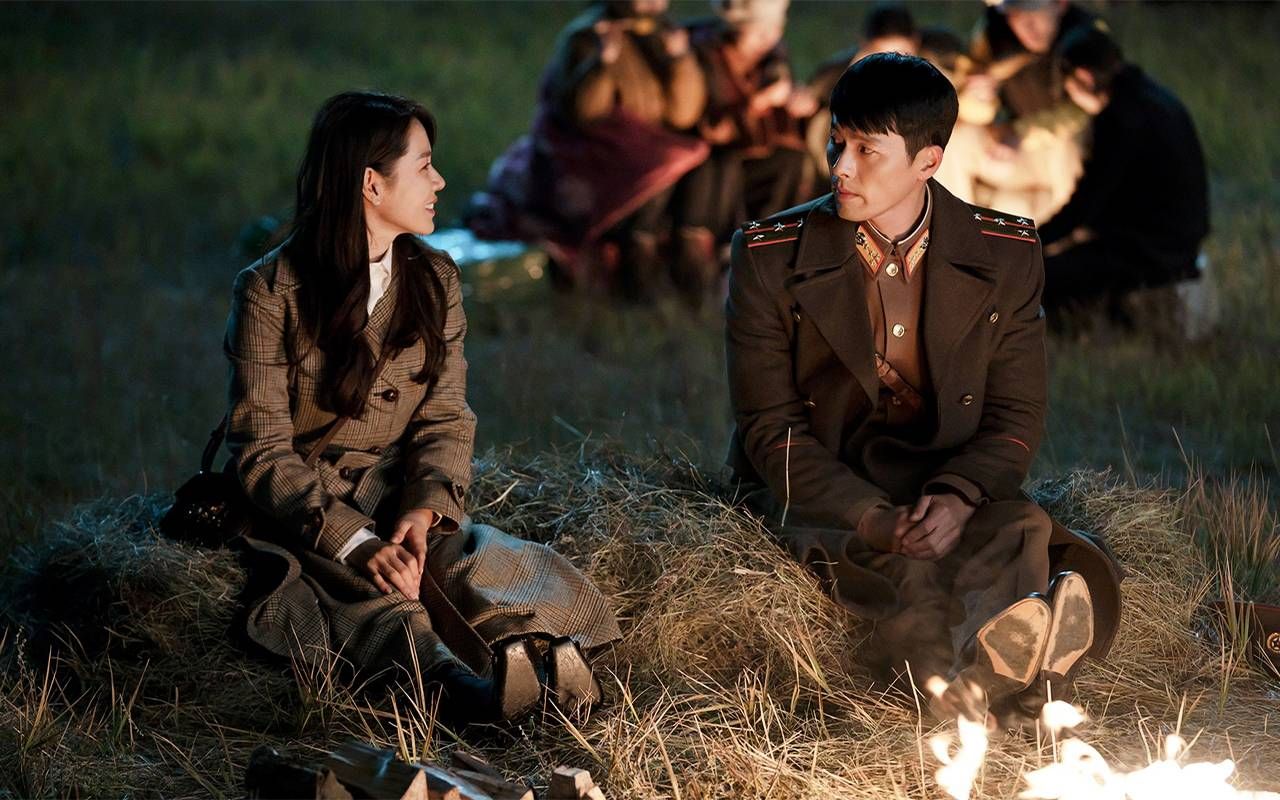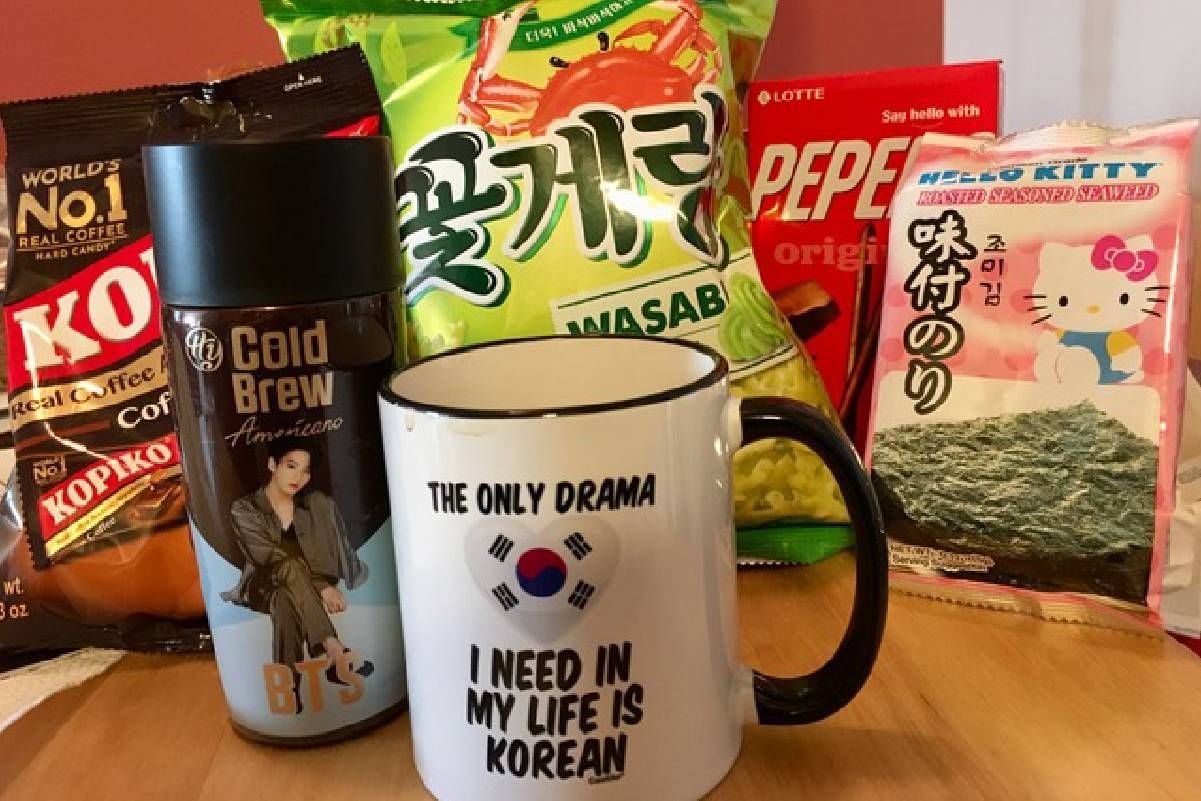Crash Landing on Me: A Surprise Passion for Korean Drama
It's a genre with a narrative focus on society's underdogs and viewers over 50 are tuning in
While scrolling through Netflix suggestions one winter evening, I noticed an odd title: "Crash Landing on You." The premise: a South Korean businesswoman, blown by fierce winds while paragliding, crashes just across the border, where a North Korean captain decides to help rather than report her.

A rom-com set in the DMZ? I stumbled onto the show that is, for many, the gateway to Korean drama, or K-drama. I gobbled the 16-episode story like popcorn, pulled along by a thrilling plot with a graceful mix of drama and comedy. One year later, I had 22 K-dramas under my belt. Many of them, like "Crash Landing," (or "CLOY," in the lingo of drama fans), left me emotionally intoxicated.
These were stories with so much heart and great story arcs, about wisdom and growth, family connections, respect for elders, with minimal sex and violence. The characters might face pain, poverty, estrangement, injustice or a zombie pandemic. There might even be a heartbreaking ending. But in the end, you felt uplifted, wiser, hopeful.
What Makes a K-Drama?
The term K-drama refers to a Korean television series, and they've been booming in popularity on Netflix in particular. They usually consist of 16 episodes, each lasting roughly an hour, and only one season. Most fans appreciate seeing one entire story arc in a season, with resolution at the end. A K-drama also features original soundtrack music (called OSTs) by top Korean composers and performers.
These were stories with so much heart and great story arcs
The South Korean entertainment industry, with the aid of government investment, has poured substantial resources into K-pop and K-dramas. The acting and the production values have leapt in recent years, with thoughtful, movie-worthy cinematography. "They've come up with a winning formula: the right number of hours, beautiful OSTs and a feel-good message," says Dafna Zur, associate professor in the Department of East Asian Languages and Cultures and scholar of Korean literature at Stanford University.
Before "CLOY," all I'd known of South Korean entertainment was the term "K-pop" and the name of its most influential band, BTS. I'd gathered it was teenybopper stuff. The global explosion of Korean pop culture is often thought of as a youth phenomenon. But, by inquiring, I learned that a sizable number of fans, like me, are older than 50.
As for me, I had grown weary of American TV series that were artistically good but left me feeling empty. Korean dramas were a balm for tough times. I found I wasn't alone.

Plenty of Us "Ahjummas" and "Ahjussis" (Middle-aged Women and Men
… as well as "halmeonis" and "harabeojis" (men and women of grandparent age.) I put up a post on the large and active Reddit K-drama group, asking for thoughts from fans who were over 50. I expected a mere handful of responses and was shocked to receive roughly 150 well-thought-out, enthusiastic comments.
Steven Ho, 52, of New York, has been watching K-dramas as a "chaser" for "heavier, cynical western dramas." They fill a void left by American streaming services. Ho also appreciates the "comfort shows that aren't too maudlin."
One young woman said that her parents, in their late 70s, have watched K-dramas since their retirement and evangelized their friends to watch. It was, she thought, a way to rebel against the trends of entertainment at the time, such as shows — "Breaking Bad," "Dexter" and "Mad Men" —fronted by anti-heroes, or never-ending serialized procedurals.
Inspiring and Universal Themes
K-dramas appear in every genre: romance, comedy, rom-com, thriller, slice of life, drama, historic, legal, medical, sci-fi and horror. They're not preachy, but wholesome virtues predominate: the values of sacrifice for others, the healing power of love, honesty, integrity and community.
"Audiences are delighted to see how underdogs overcome challenges and come out as winners at the end."
"I believe there is a powerful nostalgic imagination of innocence in Korean drama," said Saena Dozier, Ph.D., Korean Department head consultant at LanguageBird, a language program for secondary students. "Innocence that is less associated with nationhood and national identity but more associated with a universalistic and utopian way of existing within a collective community."
"Another reason for Korean drama's global popularity," Dozier said, "is its narrative focus on society's underdogs. Audiences are delighted to see how underdogs overcome challenges and come out as winners at the end."
Respect for Elders, and a Woman's Outlook
Korea, like other East Asian countries, is built around Confucian values, one of those being filial piety. As a western viewer, I was struck by the integrated role of elders in K-dramas and the respect with which they are treated. Grandparent figures are often the anchors for a troubled main character or for the community in general.
In "Navillera," a 70-year-old man pursues his lifelong dream of performing ballet, and not just as a hobby. He is as serious as his 24-year-old teacher, who aspires to the world stage. He provides much-needed moral support to his troubled teacher, and together, they help fulfill each other's dream.
In "Navillera," a 70-year-old man pursues his lifelong dream of performing ballet, and not just as a hobby.
The majority of K-drama writers are women, and this is reflected in the storytelling and the development of characters. Many viewers say they appreciate the healthier view of masculinity depicted in K-dramas. Men show tenderness and the full gamut of emotions. And it's not uncommon for the female lead to be older than the male lead.
Romances tend to be very slow burn, where the touch of a hand in episode 12 packs more voltage than a bedroom scene in episode 2 of a western drama. In thrillers, men and women, both, often literally take a bullet for each other.
Korea: The Particular to the Universal
Many viewers develop a broader interest in Korean language and culture. Sometimes fandom is shared between generations. Lisa Craig of Mt. Juliet, Tennesee, is one of two Redditors I spoke with whose interest in Korea began with sharing their daughters' enthusiasm for super-K-pop band BTS. Craig and her daughter Chelsea are traveling together this spring to visit filming sites, eat Korean food and absorb the history and culture.
So how did a country the size of Indiana develop such an outsize global footprint in business, technology and entertainment? Dafna Zur explains that South Korea, like Japan and Israel, is a resource-poor country that relies on the ingenuity of its people to be prosperous. "They have no natural gas or oil, so the nation counts on people's creativity as well as their work ethos, on which they pride themselves."

Education is highly valued. Speaking of her students who are fans of Korean entertainment and culture, Zur said, "Our students today know what took me years to figure out: Korea holds the key to economic, political and cultural puzzles today."
It's Just Good Stuff
Above all, K-dramas are good stories, well told. Randy Burleigh, of Opelousas, Louisiana, had a long list of what he enjoys about K-dramas, among them: main characters who strive to do the moral thing, "no quick fix to everyday problems, you'll be in for the long haul to get any resolution (and what a payoff it is!), and most importantly, wholly entertaining. I know without a doubt that I will be thoroughly entertained throughout the life of the show: I will be invested in the characters, I will laugh, cry and smile with them, and be cheering by the end!"
When people face adversity in K-drama stories, the solution generally lies in the healing power of love and community. That message is a great gift from the South Korean entertainment industry to a hurting world.
Recommendations
"Crash Landing on You"
"My Mister"
"Navillera"
"Mr. Queen"
"Hometown Cha Cha Cha"
"Dear My Friends"
"Hospital Playlist"
MyDramaList
The Reddit groups r/kdrama and r/kdramarecommends

Barbara J. Tuttle is a freelance writer in Minneapolis. Her features have appeared in Star Tribune, Denver Post, Wildlife Conservation, the Cricket Media magazines for children and many other publications. Read More

